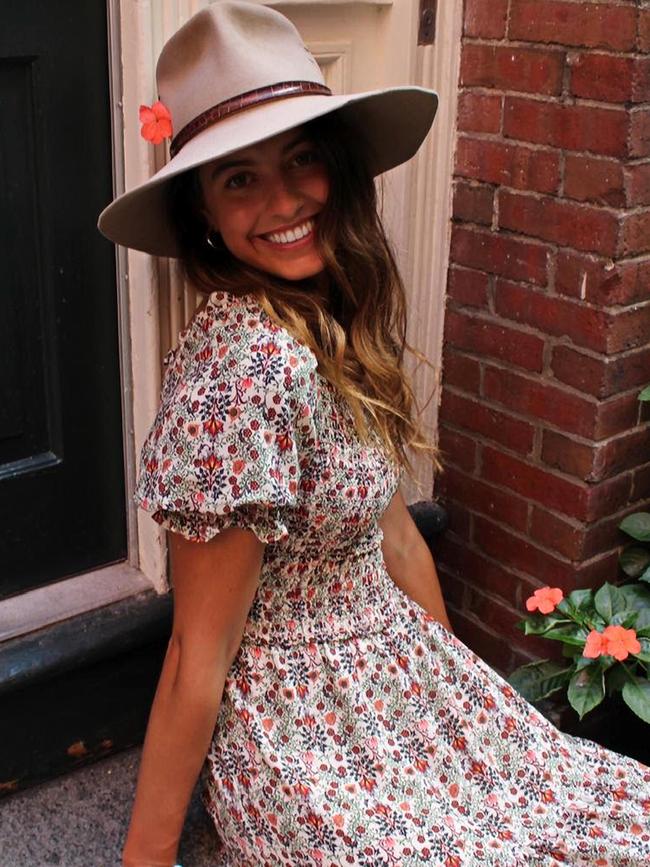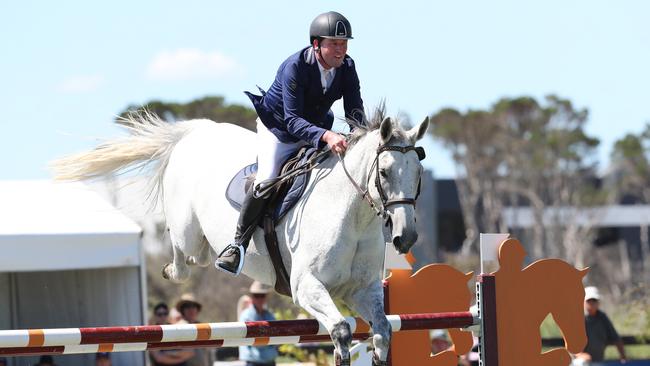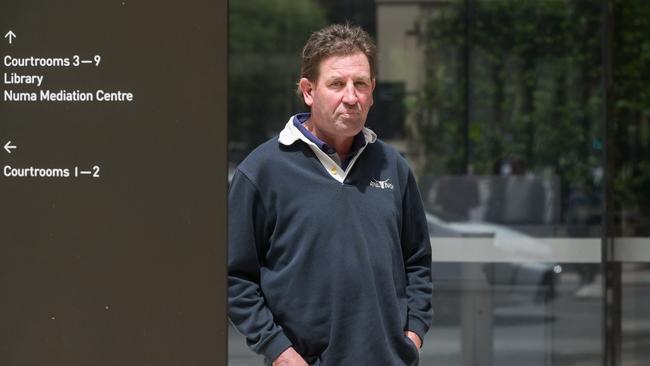Top equestrian’s three-month ban for ‘defamatory and vilifying’ social media posts
A top equestrian was slapped with a ban for harassing a young female rider speaking out about sexual grooming in the sport and for “vilifying” social media posts about her mother.
Police & Courts
Don't miss out on the headlines from Police & Courts. Followed categories will be added to My News.
A top equestrian received a three-month ban for harassing a young female rider who has spoken out about sexual grooming in the sport – and for “false and misleading” social posts about her mother, a court has heard.
On Tuesday, the Supreme Court heard Anthony Thomas was banned by national peak body Equestrian Australia for his alleged harassment of rider Kate Crauford.
Ms Crauford, 21, is taking separate action in the Human Rights Commission alleging she was sexually groomed by a state showjumping selector who also kicked their own horse in the head.

That selector has denied the allegations.
On Tuesday, the Supreme Court also heard Mr Thomas’ ban – which he says is “manifestly unfair” – was also based on social media comments made about three prominent equestrians.
Equestrian Australia found the posts about Mr Crauford’s mother, Sophie, trainer and course designer Michael Haese and a showjumper and polo player breached its “member protection and social media policies”.
Mr Thomas, owner of Southern Sport Horses, asserts Equestrian Australia wrongly and unfairly imposed a three-month ban upon him during the sport’s busy period.
He claims it broke its own bylaws by preventing him from competing in events including the 2022 Australian League World Cup qualifying rounds.
The ban, he asserts, jeopardised his national ranking – which he claims was “number six in Australia” – and income.

On Tuesday, Alex Lazarevich, for Mr Thomas, detailed the complaints made against his client.
He said the post about the polo player was made on August 17, 2021 and the post about Dr Haese one month later.
Equestrian Australia was especially critical, he said, of a November 2021 post about Sophie Crauford.
“It wrote ‘the posts written by you contain false and misleading information which may be defamatory, vilifying and potentially breach the code of conduct’,” he said.
He said Kate and Sophie Crauford had also filed a complaint with the organisation’s member protection officer.
“That talked about ‘harassment of Kate … and attempts to vilify me when I expelled him from our horse float’,” he said.
Mr Lazarevich said it had been “very difficult to distil” those details from Equestrian Australia’s documentation.
“Much of the material is redacted, and the original decision (to ban Mr Thomas) was based on an investigator’s report whose process of reasoning was itself redacted,” he said.
He also questioned the fairness of the peak body acting on Dr Haese’ complaint, given the history between the men.
“Mr Thomas had made a complaint against Dr Haese which was upheld by (the state body) Equestrian SA,” he said.
“He complained a conflict of interest had arisen in the designer of a (competition) course creating a practice run for other riders.
“Dr Haese denied there was an advantage given to other people and that the practice course was the same (as the competition course) … the complaint was upheld.”
Mr Lazarevich said Mr Thomas had been denied “procedural fairness” and Equestrian Australia had “seemingly rubber-stamped” the investigator’s conclusions and “jumped to the question of sanctions”.

“It’s not carte blanche for this body to do what it likes,” he said.
“With regard to the three Facebook posts, is a three-month suspension a reasonable response?
“Could not something else be come up with?”
Paul d’Assumpcao, for Equestrian Australia, denied Mr Thomas had been treated unfairly.
He said he investigator looking into the allegations emailed and called Mr Thomas multiple times, seeking an interview, and never received a response.
“What we have is a complete failure to engage with the process in which, one might say, it was in his interests to participate,” he said.
“It was perfectly open to him to not participate, but that carries consequences – that there’s only one version of events the investigator could consider.
“He does not get the outcome he wants and then he complains to this court … that does not spell unfairness.”
Justice Tim Stanley has reserved his decision.





